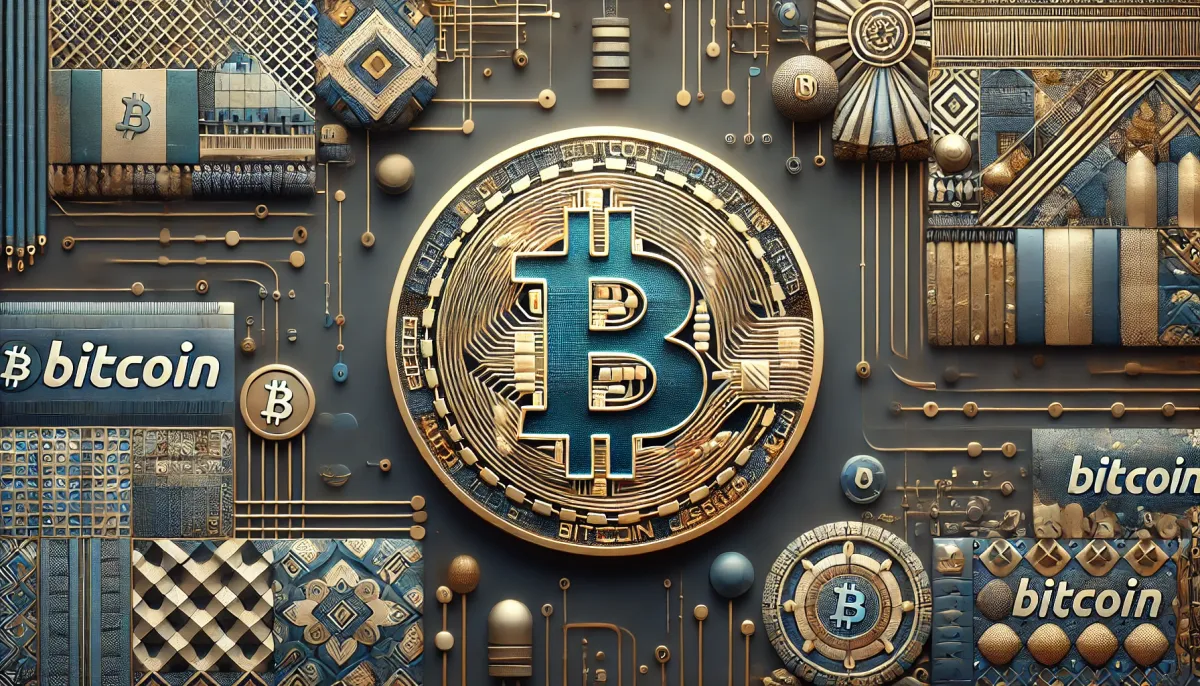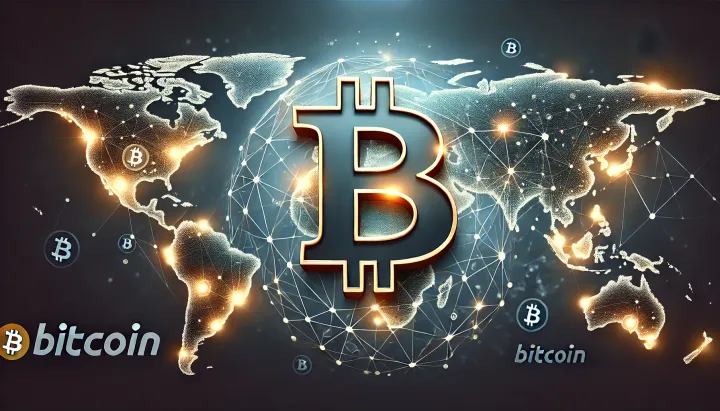Bitcoin’s Role in African Financial Independence
The November 6, 2024 episode of the Rajat Soni podcast features Stan Orajis, a long-time Bitcoiner from Nigeria, who highlights how Bitcoin is emerging as a vital savings tool for Nigerians grappling with inflation, currency devaluation, and limited access to traditional investment vehicles.

- My 'briefing notes' summarize the content of podcast episodes; they do not reflect my own views.
- They contain (1) a summary of podcast content, (2) potential information gaps, and (3) some speculative views on wider implications.
- Pay attention to broadcast dates (I often summarize older episodes)
- Some episodes I summarize may be sponsored: don't trust, verify, if the information you are looking for is to be used for decision-making.
Summary
The November 6, 2024 episode of the Rajat Soni podcast features Stan Orajis, a long-time Bitcoiner from Nigeria, who highlights how Bitcoin is emerging as a vital savings tool for Nigerians grappling with inflation, currency devaluation, and limited access to traditional investment vehicles. Through self-custody and peer-to-peer networks, Bitcoin offers a decentralized means to preserve value and maintain financial autonomy despite government restrictions. Stan Orajis’s insights emphasize the critical role of Bitcoin in fostering economic resilience and independence.
Take-Home Messages
- Bitcoin as Inflation Protection: Bitcoin serves as a reliable savings tool, offering protection from Nigeria’s high inflation and currency devaluation.
- Empowering Financial Autonomy: Self-custody allows Nigerians to secure assets independently, reducing reliance on centralized financial systems.
- Peer-to-Peer Access: P2P networks sustain Bitcoin usage, enabling decentralized access even in restricted regulatory environments.
- Business Inflation Hedge: Small businesses find Bitcoin valuable for preserving wealth against rising operational costs.
- Educational Gaps: Effective adoption will depend on countering misinformation and emphasizing Bitcoin’s savings utility rather than speculative use.
Overview
In this November 6, 2024 episode of the Rajat Soni podcast, Stan Orajis shares insights into how Nigerians are leveraging Bitcoin to address challenges of inflation and economic hardship. For many in Nigeria, high inflation and currency devaluation make traditional savings difficult, pushing individuals toward Bitcoin as a tool for preserving purchasing power. Orajis explains that Bitcoin’s decentralized nature and deflationary model provide a unique hedge against the declining value of the naira, filling a gap in financial services by allowing people to save without relying on unreliable banks or intermediaries.
Bitcoin’s self-custody feature is critical in Nigeria, where limited financial access has historically disadvantaged a large segment of the population. By allowing users to control their assets directly, Bitcoin removes the counterparty risk associated with traditional banking, creating a sense of financial security. Orajis describes how self-custody empowers individuals to retain control over their financial future, especially valuable in economies where centralized banks often lack robust infrastructure.
Peer-to-peer (P2P) exchanges are also crucial in Nigeria, where government restrictions have made Bitcoin transactions challenging. P2P networks provide a pathway for users to acquire and utilize Bitcoin without institutional barriers, supporting an alternative financial system less susceptible to regulatory interventions. According to Orajis, this resilient structure has sustained Bitcoin adoption, making it a feasible savings tool for Nigerians despite ongoing regulatory challenges.
The discussion touches on the importance of Bitcoin for small businesses facing inflationary pressures. Many Nigerian businesses are starting to recognize Bitcoin as a stable reserve asset, allowing them to hedge against unpredictable operating costs. As awareness grows, more Nigerians may see Bitcoin as a foundational part of their financial strategies, not merely a speculative asset but a means of long-term economic stability.
Stakeholder Perspectives
- Individual Savers: Value Bitcoin’s ability to secure purchasing power in a high-inflation economy, providing a reliable savings tool.
- Small Business Owners: Find Bitcoin useful as a reserve asset to hedge against rising costs and inflation, providing stability amid economic uncertainty.
- Government and Regulators: Concerned with Bitcoin’s potential to bypass centralized controls, possibly leading to regulatory actions to monitor or limit usage.
- Bitcoin Advocates and Educators: Focus on bridging the education gap, emphasizing Bitcoin’s practical applications and addressing misconceptions about its utility.
Implications
Bitcoin adoption in high-inflation regions like Nigeria could reshape traditional savings and asset management practices, positioning Bitcoin as a fundamental tool for economic independence. This trend has implications for policymakers who may need to address a growing demand for decentralized financial tools that bypass institutional barriers. As citizens gain financial autonomy through self-custody and peer-to-peer transactions, Bitcoin could shift power away from centralized institutions and toward individual control over assets.
The ability of Bitcoin to offer a stable alternative to volatile local currencies suggests its potential role as a safeguard against economic instability. However, continued adoption will rely on effective education to mitigate misconceptions and promote responsible use. If Bitcoin’s usage grows among small businesses and individuals as a response to inflation, regulatory frameworks may need to adapt to balance oversight with the benefits of economic resilience that Bitcoin provides.
Future Outlook
Bitcoin’s role as a savings tool in Nigeria is likely to expand, especially as inflation remains a significant issue and traditional financial alternatives are limited. If more individuals adopt Bitcoin to preserve purchasing power, the impact could drive substantial growth in decentralized savings across the region. Peer-to-peer networks may become increasingly vital in sustaining adoption, offering a robust channel for financial access despite restrictive policies.
Effective educational initiatives will be critical to facilitate responsible Bitcoin use, emphasizing its value for savings over speculative purposes. Additionally, as small businesses continue to turn to Bitcoin for asset preservation, there may be a broader economic shift, with Bitcoin playing a larger role in regional economic stability. This shift highlights a potential policy need to reconsider Bitcoin’s place within financial systems, recognizing its resilience and decentralized strength.
Information Gaps
- How effectively does Bitcoin preserve purchasing power compared to other inflation-resistant assets? Addressing this gap would clarify Bitcoin’s suitability as a savings tool, informing decisions on whether it offers a significant advantage in inflation-prone regions.
- How can peer-to-peer networks support Bitcoin adoption despite regulatory challenges? This question is essential for understanding P2P’s role in enabling Bitcoin access, especially where formal financial systems impose barriers.
- How can misinformation about Bitcoin’s function as an investment versus a savings tool be effectively countered? Overcoming educational gaps would promote informed usage, helping people view Bitcoin as a stable savings option rather than a risky investment.
- What are the potential risks and rewards for businesses adopting Bitcoin as a reserve asset? Insights into business adoption would illuminate Bitcoin’s practical benefits and potential pitfalls, guiding small businesses on responsible use in inflationary economies.
- Could Bitcoin adoption mitigate some of the adverse effects associated with a currency collapse in developing countries? Exploring this question would shed light on Bitcoin’s potential as a financial safety net, contributing to policy debates on its role in economic stability.
Broader Implications
Bitcoin as a Tool for Financial Resilience
Bitcoin’s role in preserving value in inflationary economies highlights its importance as an economic lifeline for individuals in unstable financial environments. In countries like Nigeria, where currency devaluation significantly impacts wealth, Bitcoin adoption for savings purposes may become more widespread. This shift underscores Bitcoin’s potential as a critical asset for financial resilience, providing a hedge against monetary instability.
Decentralized Financial Empowerment
The ability of Bitcoin to bypass centralized controls through peer-to-peer networks offers individuals unprecedented autonomy over their assets. As regulatory pressure increases, Bitcoin’s decentralized architecture ensures that financial empowerment remains accessible, particularly in regions with restrictive banking systems. This trend could signify a move toward decentralized finance as an essential element of economic independence globally.
Small Business Asset Management
For small businesses facing inflationary challenges, Bitcoin can serve as a viable reserve asset to safeguard operational stability. This use of Bitcoin as an inflation-resistant reserve could reshape asset management strategies among businesses in emerging economies. Widespread adoption of Bitcoin in this capacity could influence global perceptions of digital assets as practical tools for financial resilience.
Educating for Responsible Bitcoin Use
Effective education on Bitcoin’s role as a savings tool is essential to foster responsible adoption and mitigate risks associated with misinformation. Bridging this knowledge gap could lead to a more informed public, using Bitcoin as a stable asset rather than a speculative tool. Clear, accurate educational initiatives may encourage sustainable adoption, positioning Bitcoin as a cornerstone of individual financial security.



Comments ()